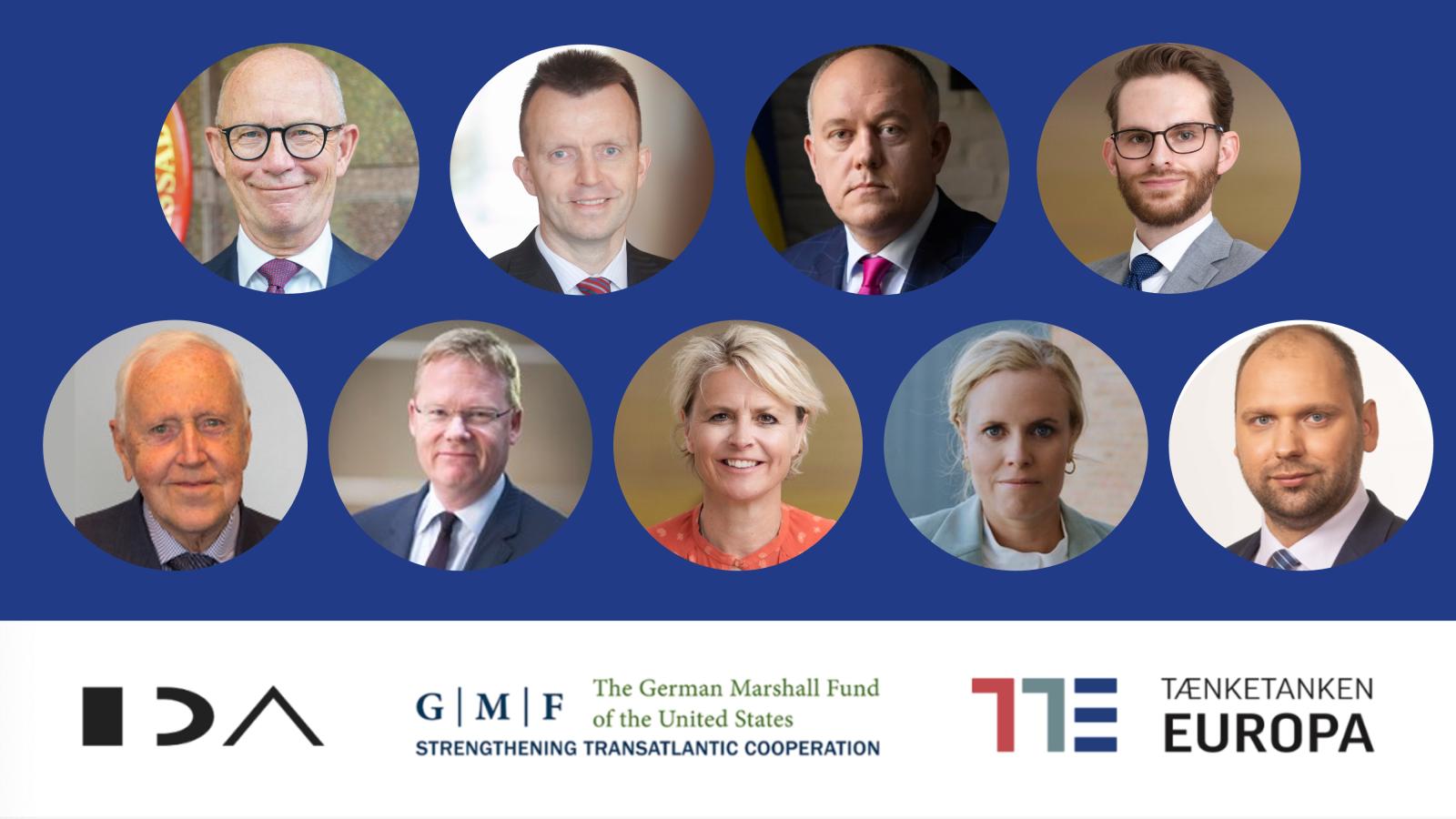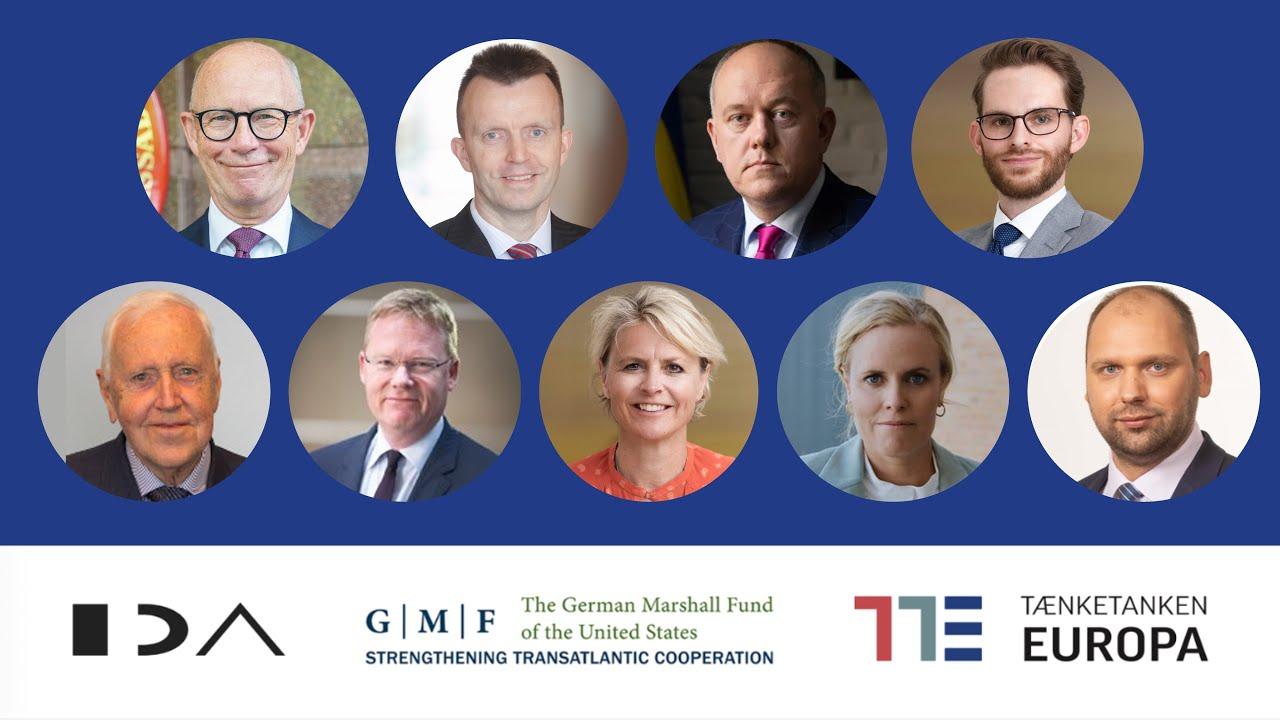How do we pay for the Reconstruction of Ukraine – is common debt (part of) the answer?
Conference organized by German Marshall Fund, Think Tank Europa and IDA
The reconstruction of Ukraine must begin today, not tomorrow, concluded all participants when we hosted ambassadors, experts and a vice-minister on September 8 at IDA for an afternoon conference on the topic - indeed, "reconstruction has already started," said Ole Egberg Mikkelsen, the Danish ambassador to the country, in the first talk of the day.
Russian attacks have destroyed schools and hospitals, roads and bridges, but fast and effective support for Ukraine "is not charity - it's something we do for our own core national strategic interest," stressed Jacob Funk Kirkegaard from the German Marshall Fund, a co-organizer. Based on a newly published report about the reconstruction, he estimates the size of the package will reach between 100 and 750 billion euros over a ten-year period with a mix of loans and grants.
Financing it will be tough - especially at a time when European states dedicate resources to citizens hit by sky-high electricity prices, as Anders Overvad, chief analyst at Think Tank EUROPA, pointed out during the panel debate. Kirkegaard suggests governments should therefore consider issuing new common debt in the EU as they did during the COVID-crisis, originally thought of as a one-off tool.
But the economist Niels Thygesen doubted there would be sufficient political will to repeat the trick: "Member states remain at the moment liable for paying back these loans," and state debts are already too high in many European countries.
The conference's keynote speech was given by Lithuania's vice-minister of economy and innovation, Vincas Jurgutis, who encouraged seeing the reconstruction of Ukraine as an opportunity to put the country's Soviet past further behind: "Let's not rebuild Ukraine in the Soviet way it was build before 1991" - but instead prepare Ukraine to enter our European family, he said.
Yes!, affirmed the Ukrainian ambassador to Denmark, Mykhailo Vydoinyk, when he gave his closing remarks: "And don't hesitate! There is no other option."
Watch the conference
Read the program and event description below
Russia’s invasion of Ukraine has brought largescale war back to Europe, and with it eventually the need for a reconstruction effort unseen here since the Marshall Plan. While some financial support can be expected from the international community most of the reconstruction burden is expected to fall on the EU.
A successful reconstruction of Ukraine will however be expensive. Perhaps currently frozen Russian sovereign assets will be part of a peace settlement, or other avenues of war reparations will be pursued. Yet, in any realistic scenario, the EU will over the coming years have to devote hundreds of billions of euros to this effort. The question is whether, or how, the EU will decide to carry out this task?
Multilateral development bank balance sheets cannot finance large-scale reconstruction of infrastructure normally paid for by government tax revenues, but financial costs of this magnitude are well beyond the recently agreed 2021-27 Multiannual Financial Frameworks (MMF) or bilateral member state assistance to Ukraine. Both the European Commission and the EU Council agrees that new sources of financing must be identified.
The Covid19 pandemic saw the EU take the unprecedented step of issuing common debt to help conditionally finance our economic recovery. Were the EU to take a similar step to help Ukraine, it would through the precedent setting effect of such repeated crisis-driven common debt issuance usher in a new degree of EU fiscal integration.
This conference hosted by Think Tank Europa and the German Marshall Fund will explore the different challenges and opportunities facing the EU decisionmakers as they contemplate how to adequately finance Ukraine’s reconstruction and EU accession process.


-
15.00 - 15.05Welcome by Chairman Laura Klitgaard, The Danish Society of Engineers, IDA
-
15.05 - 15.25Danish Reconstruction in Ukraine – Danish ambassador to Ukraine, Ole Egberg Mikkelsen (Online)
-
15.25 - 15.45Keynote intervention by Vincas Jurgutis, Vice-Minister of the Economy and Innovation of the Republic of Lithuania
-
15.45 - 16.10Break
-
16.10 - 17.00
Panel discussion: Should common debt finance the rebuilding of Ukraine?
Jacob Funk Kirkegaard/German Marshall Fund, prof. Niels Thygesen/European Fiscal Board and Anders Overvad/Think Tank Europa -
17.00 - 17.20Discussion: How can Europe finance the rebuilding of Ukraine? (Online)
Kim Jørgensen, Director General, European Investment Bank -
17.20 - 17.25Closing remarks
by Vydoinyk Mykhailo, Ambassador Extraordinary and Plenipotentiary of Ukraine to the Kingdom of Denmark
Moderator: Director Lykke Friis, Think Tank Europa


